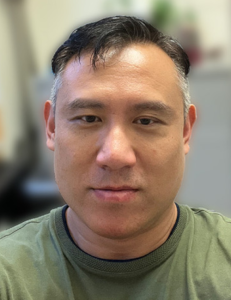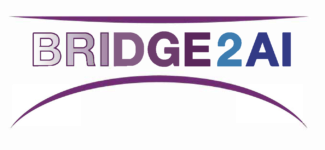Training, Recruitment, and Mentoring (TRM)
Charter: This working group is charged with coordinating endeavors to ensure that the next generation of scientists, across a broad range of backgrounds (i.e., clinician scientists, biomedical data scientists, etc.), are appropriately informed and empowered to pursue career trajectories in this space. This WG entails bringing to the fore the contemporary issues of training within a fast-paced space with significant technical changes and the longstanding foundational ethical, social, and legal issues that underlie biomedical and behavioral AI applications. Furthermore, this WG looks to encourage a new generation of scientists across an interdisciplinary spectrum and identify best practices for mentoring such individuals.
Artificial intelligence (AI) approaches are creating exciting ways to manipulate, analyze, and extract insights across a wealth of biomedical and behavioral datasets. Novel algorithms and data-driven perspectives promise to revolutionize how we discover new scientific knowledge and optimize healthcare delivery. Yet there remains a gap between AI theory and practice. This gap arises in part from the challenge of understanding increasingly complex datasets, and in part from the rapid evolution of AI methods. It is imperative that we equip our current and future workforces with the skills to correctly use and evaluate biomedical AI and data science methods. Filling this need involves enabling comprehension of the growing range of sociotechnical aspects that will drive applications of AI. The overarching objective of this Training, Recruitment, and Mentoring (TRM) working group is to facilitate interdisciplinary, collaborative training in AI-related areas of biomedical/behavioral research, directly leveraging the products and approaches of the Grand Challenges (GCs). Working with the GCs, we will create educational modules and activities that use their AI-ready datasets to teach contemporary computational methods and their intertwined social and ethical issues.
Working in partnership with the other Bridge2AI working groups and the GCs, the TRM working group will develop a public Bridge2AI portal for educational resource discovery and dissemination around a unifying framework, connecting shared resources, highlighting specific educational components (e.g., for targeted datasets). The TRM working group will hold a series of activities, including data challenges/jamborees and hackathons that use GC datasets/tools to create awareness/dissemination. The TRM working group will foster open discussion to inform issues of high priority amongst different groups and ways in which we can improve biomedical/behavioral AI training to achieve impact. Central to its mission, the TRM working group looks to inspire new scientists in biomedical/behavioral AI with outreach designed to increase inclusion of individuals from underrepresented minorities (URMs) and underserved communities through novel, tailored training opportunities. The results of the TRM working group will be new educational resources that build upon the GCs, forging a comprehensive curriculum for individuals varying from undergraduates to graduate students, clinician-scientists and faculty from different disciplines.
Who We Are

Peipei Ping, PhD
Co-Lead
University of California, Los Angeles

Karol Watson, MD, PhD
Co-Lead
University of California, Los Angeles

Wei Wang, PhD
Co-Investigator
University of California, Los Angeles

Jack Rincon
Project Manager
University of California, Los Angeles

Miriam Ojeda
Program Coordinator
University of California, Los Angeles

Dean Wang, PhD
Project Manager
University of California, Los Angeles

Alexander Pelletier
e-Learning Coordinator
University of California, Los Angeles

Alex Bui, PhD
Co-Investigator
University of California, Los Angeles

Paul Boutros, PhD, MBA
Co-Investigator
University of California, Los Angeles

Henning Hermjakob, PhD
Senior Scientific Consultant
University of California, Los Angeles

Yu Yan
Instructor
University of California, Los Angeles

Namuna Panday, PhD
Instructor
University of California, Los Angeles
